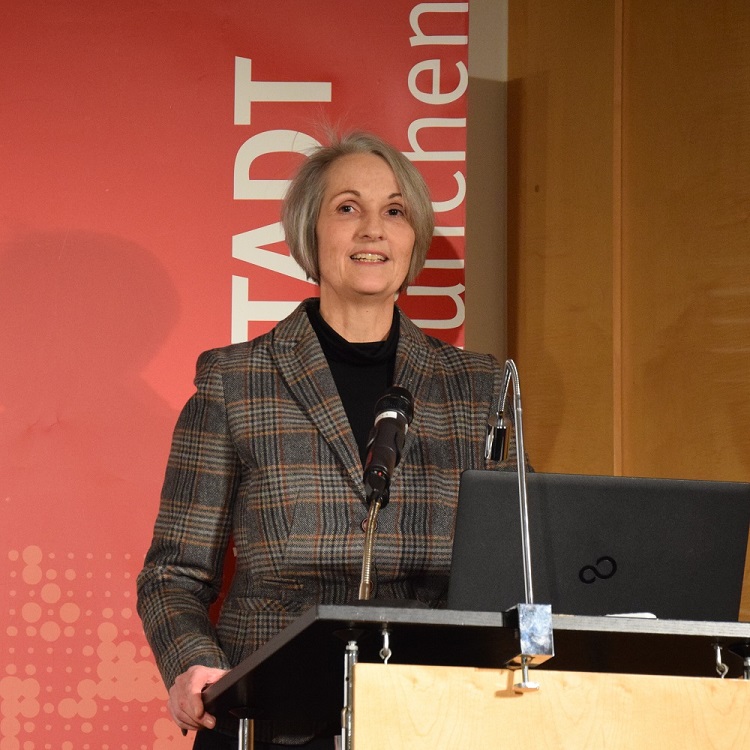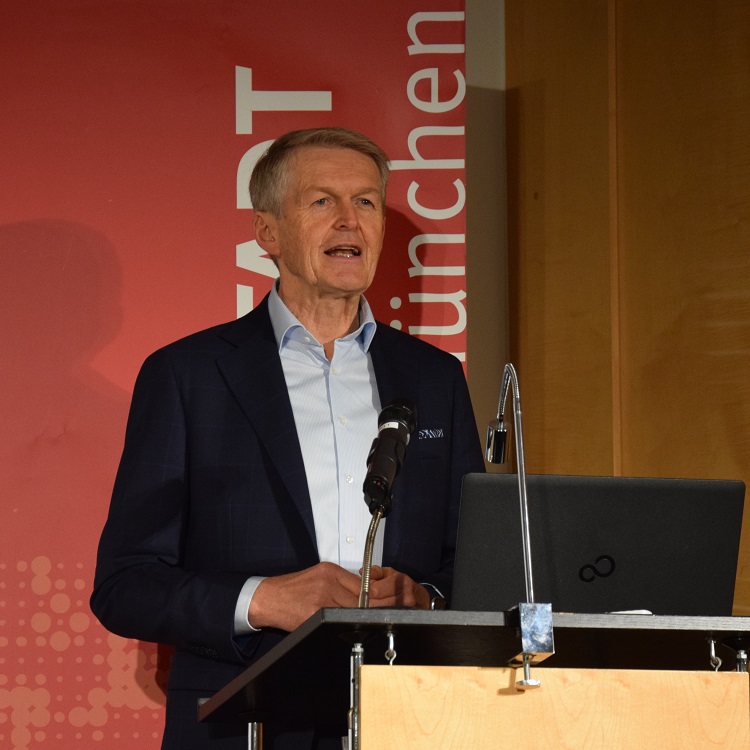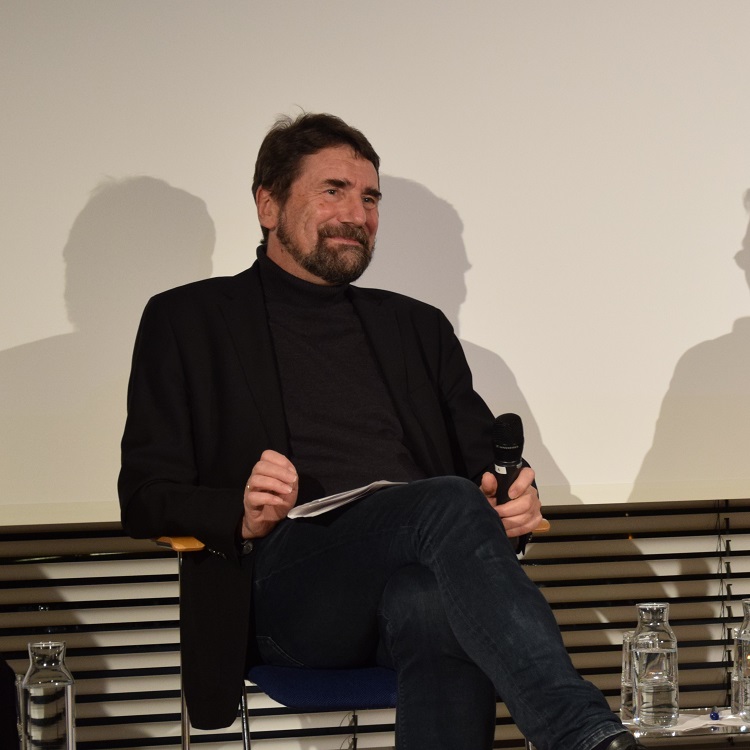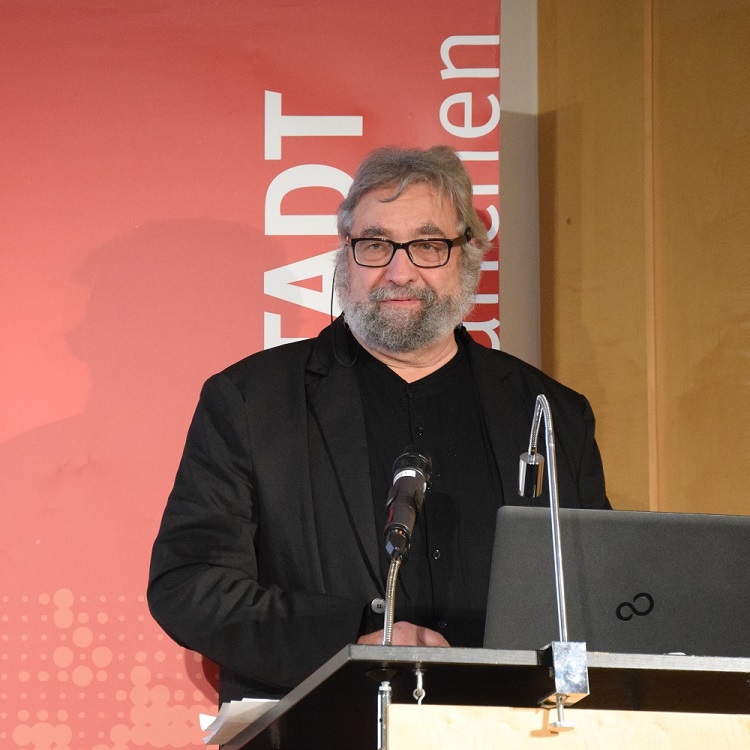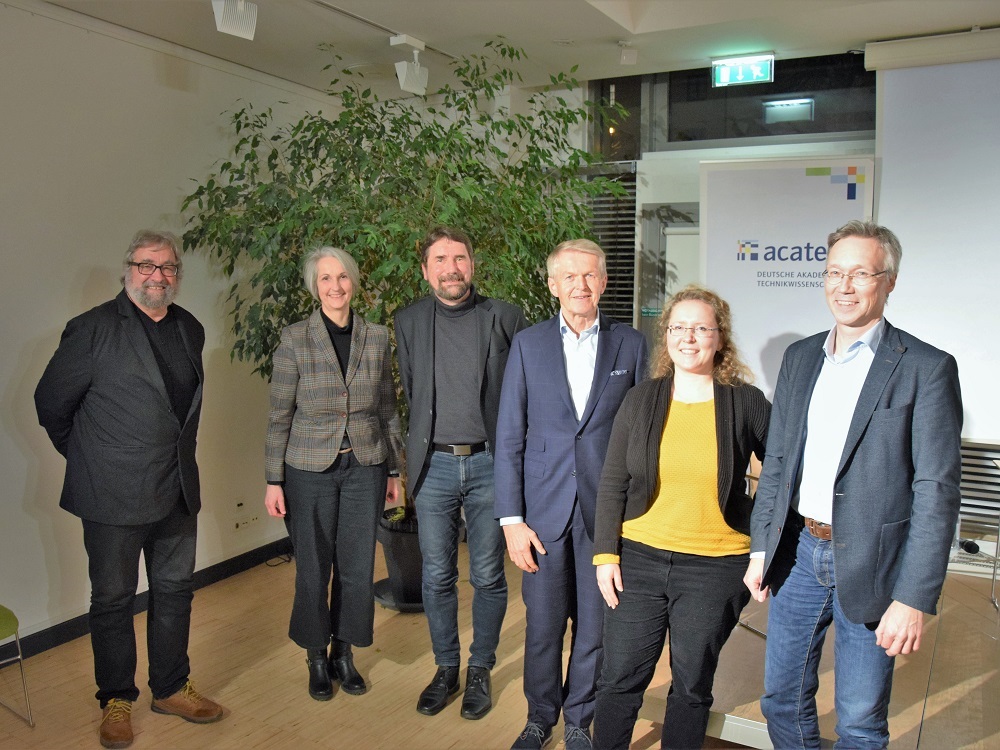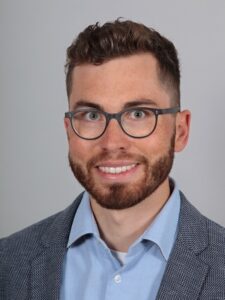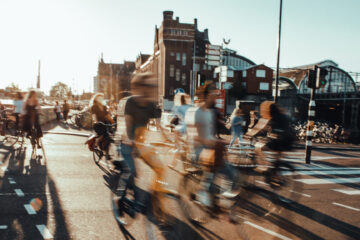Reaching success – sustainable mobility in urban development
![Luise Schnell (Stattbau München GmbH), emcee Thomas Zeilinger (Beauftragter der Evangelisch-Lutherischen Kirche in Bayern für Ethik im Dialog mit Technologie und Naturwissenschaft), Georg Dunkel (City of Munich, Mobilitätsreferat) and acatech member Klaus J. Beckmann (KJB.Kom) [from left to right] at acatech am Dienstag in the Evangelische Stadtakademie München.](https://en.acatech.de/wp-content/uploads/sites/6/2023/03/Foto-News_DSC_0092.jpg)
Munich, 30 January 2023
Urban infrastructure has a significant influence on how we get from A to B. The research shows that compact, versatile, mixed-use spaces are key to having greater freedom in our personal mobility choices. It also shows that urban areas need more spaces for people to spend time. Neighbourhoods with varied spaces which are as barrier free as possible, invite people to meet and chat. This would make the streetscape more livable. At acatech am Dienstag, which took place live in Munich on 24 January in collaboration with the Evangelische Stadtakademie, the panellists discussed, taking Munich as an example, how integrated urban planning might be successfully implemented and what this means.
Opening the event, Barbara Hepp, Evangelische Stadtakademie München, welcomed those in attendance and the viewers on livestream. acatech Vice-President Thomas Weber, based on the examples of Munich and Stuttgart, illustrated the challenges currently facing urban development. According to him, sustainable mobility in towns and cities can only be achieved by taking interdisciplinary approaches, transforming the mobility culture and launching a national discourse.
In his keynote speech, acatech member Klaus J. Beckmann, mobility researcher and managing director of consulting firm KJB.Kom, called for a new mobility culture and extended mobility options. The aim is to have different modes in order to offer choice as well as to create urban spaces that are versatile and can be used to meet and chat without constraints or the compulsion to buy. Urban spaces must be designed as social spaces to enhance the quality of public amenities in which people like to spend time.
The approach to spaces also has a direct impact on the climate, and sustainability is one aspect of social justice, said Klaus J. Beckmann. We must come round to a new way of thinking that mobility is not a means of overcoming spatial distance but an opportunity for social integration and participation. To achieve this, spatial and transport development must be integrated. The transport researcher went on to say that targeted implementation requires sufficient numbers of qualified personnel to be trained up as well as their further development and strategic long-term retention.
Thomas Zeilinger, Beauftragter der Evangelisch-Lutherischen Kirche in Bayern für Ethik im Dialog mit Technologie und Naturwissenschaft (representative of the Evangelical Lutheran Church of Bavaria for ethics in dialogue with technology and the natural sciences) moderated the subsequent panel discussion. Georg Dunkel, head of the Mobilitätsreferat of the City of Munich, agreed with the previous speaker Klaus J. Beckmann in that there must be a greater emphasis on living towns and cities. Technology alone cannot solve the problems, he said; it also comes down to the behaviours of the civilian population. Changing the regulations could help to change behaviours. Luise Schnell, Stattbau München GmbH, added that what she would like from city hall is more effective communication, faster change and more pilot projects. Georg Dunkel mentioned pop-up cycleways as a sign of rapid concepts, and stated that there will be a breakthrough in the City of Munich, such as an overall strategy for sharing and the expansion of mobility hubs in the city. He went on to say that, unfortunately, cars are still very attractive while still being low-cost. To combat this, the appeal of not taking the car must be enhanced.
It came to the fore in the discussion with the audience that there is a lot to be done in relation to the mobility culture and it is not an awareness problem but an implementation problem. This applies to well-established neighbourhoods in particular whereas new concepts have already been implemented in new developments. Klaus J. Beckmann added that there are already more possibilities open to us than we think. One possibility is to reduce parking space requirements. Often what is lacking is a political master plan at all levels.
In her closing statement, Luise Schnell called for a change of perspective and that we should ask ourselves how those around us are doing. Klaus J. Beckmann suggested greater social dialogue in order to learn from one another. He appealed to engineers not to develop counter-productive concepts. Georg Dunkel called for a more laid-back attitude in society. It is not possible to change behaviours overnight- but it is crucial to pass on a new mobility culture to the next generation.
Impressions:
